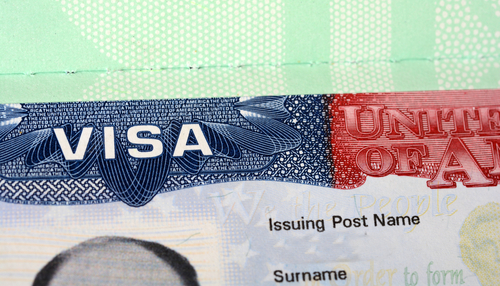[ad_1]
U.S. Supreme Court
Relying on ‘secret evidence’ to deny visa for spouse violates due process, ABA says in SCOTUS amicus brief

The U.S. Supreme Court should rule that the government can’t deny visas for noncitizen spouses of U.S. citizens without explaining the reason and disclosing the evidence that was the basis for the decision, the ABA has said in an amicus brief. (Image from Shutterstock)
The U.S. Supreme Court should rule that the government can’t deny visas for noncitizen spouses of U.S. citizens without explaining the reason and disclosing the evidence that was the basis for the decision, the ABA has said in an amicus brief.
Relying on “secret evidence” to make the decision violates the due process clause, the ABA argued in the March 28 brief filed with the Supreme Court.
It’s not enough, the ABA brief said, for consular officials to cite a “catch-all” statutory provision that denies visas to applicants based on a reasonable belief that they will engage in unspecified “unlawful activity.”
Lawyers can’t provide meaningful legal advice to their clients when the government merely cites the law without providing further explanation, the brief said.
The case, Department of State v. Muñoz, is scheduled for argument April 23, according to a March 28 ABA press release.
The Supreme Court is considering two issues. The first is whether a U.S. citizen has a due process interest in the denial of a visa for a noncitizen spouse. If the answer is yes, the second question is whether the government satisfies due process when it merely cites the “unlawful activity” provision as the reason for the visa denial.
The ABA focused on the second question in its amicus brief.
The case involves noncitizen Luis Asencio-Cordero and his U.S. citizen spouse Sandra Muñoz.
Asencio-Cordero had been living with Muñoz in the United States. He obtained a waiver of inadmissibility excusing his unlawful presence here, which is available upon a showing that the citizen spouse will experience “extreme hardship” if the waiver isn’t granted. He then followed the required next step, traveling to El Salvador for an interview at a Department of State consular office.
The office determined that Asencio-Cordero was likely to engage in unlawful activity. As a result, he can’t return to his wife and child in the United States for at least 10 years and possibly indefinitely, the ABA brief said.
[ad_2]




